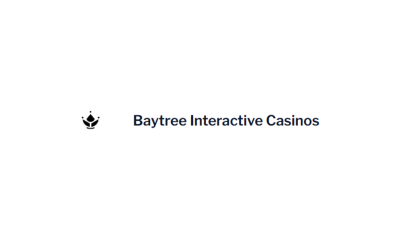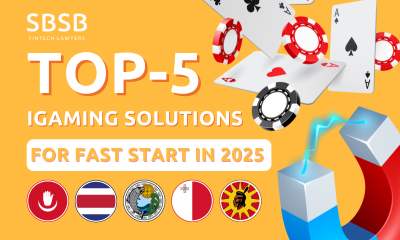Latest News
Comparing the Evolution of iGaming Platforms in Europe and North America

The iGaming industry has experienced rapid global growth over the past two decades, transforming from a niche sector into a mainstream form of digital entertainment. Yet while the expansion is worldwide, the journey has looked very different across regions. Europe and North America stand out as two major markets, each shaped by unique regulatory approaches, technological priorities, and cultural preferences.
Europe’s Early iGaming Growth
Europe played a pioneering role in the early growth of iGaming, with the 2000s marking a period of rapid expansion. Countries like the UK and Malta were among the first to establish comprehensive regulatory frameworks, attracting operators from around the world.
The UK Gambling Commission and Malta Gaming Authority became benchmarks for licensing standards, fostering trust among players and stability for businesses. Cross-border online sportsbooks thrived, laying the groundwork for broader casino offerings as consumer demand evolved.
This early regulatory clarity gave European platforms a competitive edge in refining user experience and adopting new technologies. Many global operators took note and studied the European model when planning platform features and compliance strategies.
North America’s Slower Start
North America’s journey into iGaming was more cautious and fragmented compared to Europe’s rapid rise. In the United States, strict federal and state-level restrictions stalled the growth of legal online gambling for years. Canada, by contrast, showed more openness, particularly in provinces like British Columbia and Quebec, where early digital platforms were government-operated.
The repeal of PASPA in 2018 marked a major turning point for the US, unlocking the potential for states to regulate sports betting and, in some cases, online casino gaming. This shift led to a wave of land-based casino brands entering the digital space, leveraging existing reputations to build online platforms.
One such example is BetMGM online casino, which emerged as a key player by bridging the gap between physical casinos and new digital demand. This movement sparked a competitive landscape that continues to evolve as more states and provinces adapt to the changing legal and technological environment.
Regulation: Contrasts and Complexities
Regulation is one of the most defining differences between iGaming in Europe and North America. Europe, while home to some of the world’s most established iGaming markets, operates under a fragmented regulatory framework.
Countries such as the UK, Malta, Sweden, and the Netherlands have their own licensing bodies, each with distinct requirements, tax rates, and approaches to responsible gambling. This has created a diverse landscape where operators must adapt to varying rules across borders, but it has also encouraged innovation and high compliance standards.
In contrast, North America presents its own version of regulatory complexity. The United States follows a state-by-state model, with each jurisdiction deciding whether to allow iGaming and under what conditions. Some states permit online sports betting but not casino games, while others are still debating legalization.
Canada, too, operates on a provincial basis, with Ontario being the most open and commercially competitive. These regional laws result in a patchwork of rules that can slow down expansion and increase compliance costs. For operators, regulation impacts everything from platform speed to marketing strategies and ultimately shapes how they can engage with players.

Tech and Platform Innovation
Technological advancement has played a central role in shaping iGaming platforms on both continents, though priorities have differed. European platforms, with their longer history, embraced mobile-first design early on, along with features like gamification and multilingual support to cater to diverse markets.
In North America, where legalization came later, many platforms were built using newer tech stacks, often led by land-based casino brands looking to replicate their in-person experience online. This resulted in a strong focus on user interface and seamless cross-device play.
Across both regions, innovation continues to thrive through live-dealer games, AI-driven personalization, and growing interest in blockchain integration: all tools that enhance both player engagement and operational efficiency.
Player Preferences and Market Differences
Player behavior across Europe and North America reflects distinct regional preferences. European audiences have long gravitated toward sportsbooks, with strong national loyalties shaping betting patterns and interest in region-specific games like bingo or table variants. In North America, the recent sports betting boom has driven much of the market’s growth, while online casino adoption is still gaining ground.
Payment preferences also differ. Europe sees wider use of e-wallets and prepaid options, while North America leans more heavily on cards and direct banking. Bonus expectations, loyalty schemes, and levels of trust in new platforms vary just as widely.
Ongoing Challenges and Future Potential
As the iGaming industry matures, both Europe and North America face growing challenges. In Europe, tightening regulations, stricter advertising rules, and growing concerns over player fatigue are prompting operators to rethink their engagement strategies. Meanwhile, North America contends with inconsistent legal frameworks, potential market saturation, and pressure from investors seeking rapid returns.
Despite these regional issues, shared challenges persist, particularly around responsible gambling technology, rising competition, and maintaining player trust. Looking ahead, success in both markets will depend on how platforms balance innovation with accountability while adapting to fast-moving regulatory and consumer shifts.

The Ongoing Journey of iGaming Across Borders
Europe and North America have followed distinct but increasingly intertwined paths in iGaming evolution. While regulatory and cultural differences remain, both regions push innovation and growth. As markets mature, their mutual influence will likely accelerate, shaping the future of global online gaming.
-

 eSports7 days ago
eSports7 days ago2025 PUBG MOBILE World Cup Survival Stage set to determine Grand Finalists
-

 Asia6 days ago
Asia6 days agoUzbekistan Introduces Penalties for Illegal Gambling Operations
-

 Compliance Updates5 days ago
Compliance Updates5 days agoIsle of Man Government Publishes Terrorist Financing National Risk Assessment
-

 Compliance Updates5 days ago
Compliance Updates5 days agoPollard Banknote Secures License to Supply Gaming-related Goods and Services In the UAE
-

 Australia6 days ago
Australia6 days agoBetMakers Partners with The Bookie Group
-

 eSports7 days ago
eSports7 days agoAG.AL Crowned Honor of Kings World Cup Champions at the 2025 Esports World Cup
-

 Asia6 days ago
Asia6 days agoIOA President PT Usha Applauds Champions of Inaugural WAVES Esports Championship
-

 eSports4 days ago
eSports4 days ago2025 PUBG MOBILE WORLD CUP FINALISTS LOCKED IN AS 16 TEAMS MAKE THE CUT








.png)


















